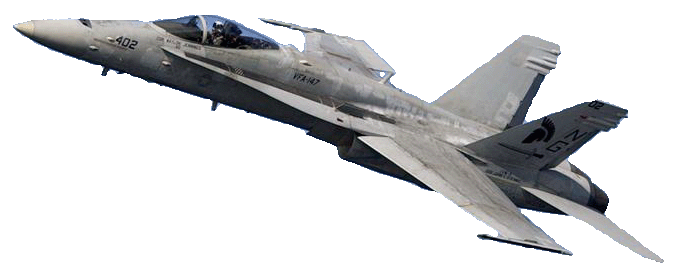
 |
|
Enlistment Information |
For More Information | Navy Related Links | Features and Benefits | About Us | Message Board |
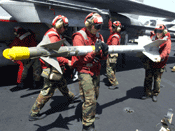 |
On the SeaSurface warfare officers (SWOs) manage operations aboard Navy surface ships of all types including nuclear-powered aircraft carriers and cruisers. Sea duty assignments aboard nuclear and conventionally powered ships, combatant and support ships offer excellent career opportunities for men and women. (Command at sea) Complete responsibility for a Navy ship and her crew is the goal of surface warfare officers. It's a proud achievement that reflects the very best in professionalism, leadership, performance and technical skills. Surface warfare officers receive specialized officer and operational training based upon their selection for conventionally powered or nuclear-powereed ships. And remember: "At Sea" doesn't mean being onboard a ship all the time! Ships have planned at-sea schedules and spend much time in home port or visiting other ports in foreign countries and the United States. Most officers commute to their ships from civilian and military communities and only live abroad when their ship is at sea. Between sea tours, surface officers enjoy opporunities for assignment to shore facilities, instructor duties and postgraduate education institutions. |
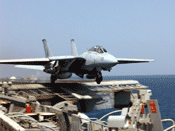 |
|
AshoreNavy shore facilities support their people, ships and aircaft throughout the United States and around the world. This fleet support establishment is operationally and technically oriented and increasingly comples. It demands leaders with expertise in management and Navy subspecialty areas ranging from strategic planning to financial and information management. Navy officers in warfare and other specialty areas also serve in shipyards, air stations, electronics and ordnance laboratories, nuclear power plants, supply depots and medical centers. All Navy officers have opportunities to serve on other military and allied command staffs, embassy staffs and Department of Defense and Department of the Navy headquarters. |
 |
In the AirNavy aviation officers are teh select few worldwide who experience the unsurpassed thrill of flying from the deck of an aircraft carrier at sea. The Navy aviation team is made up of Naval aviators (pilots) who fly the aircraft and Naval flight officers (NFOs) who control the aircraft's sophisticated weapons and guidance systems. Pilots and NFOs experience almost every type of flying, from advanced carrier-based jets to land-based patrol and transport aircraft to helicopters. Aviation officers perform the full spectrum of air missions, including fleet air defense, fighter/attack missions, anti-submarine warfare, and search and rescue. |
|
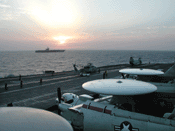 |
Or Under the SeaNavy submarine officers carry out their unique missions in one of the world's last great frontiers. Nulcear-powered fast attack and ballistic missile submarines can patrol under the seas undetected for months without surfacing. However, they rarely stay submerged that long at one time. Officers completing training are assigned to nuclear submarines, where superior initiative, leadership and personal responsibility are required to achieve submarine warfare qualifications. These same skills prepare top officers for the ultimate goal: command at sea of nuclear submarines. |
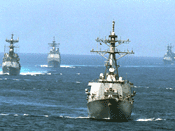 |
|
TrainingTaining for conventional-power surface officers:
Prospective pilots receive the following training:
Prospective Naval flight officers receive the following training:
Training for nuclear-power warfare officers:
Officers selected for nuclear submarines receive the following taining:
|
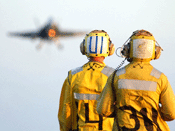 |
Baccalaureate Degree Completion program (BDCP)You earn up to $54,000 while you're in college! If you're a civilian or enlisted inactive reservist of any armed service working toward your bachelor's degree, the Navy's Baccalaureate Degree Completion program could give you the financial boost you need to complete your college degree requirments and help you become a Navyl Reserve officer at the same time. As a member of the program, you will:
You'll pay for your tuition, books and other school-related expenses while completing your bachelor's degree. No uniform requirements apply until after graduation. As a selectee, your service obligation is four years of active duty, then four years in an inactive status unless otherwise required by your officer community. |
|
 |
Navy officers enjoy many outstanding benefits including:
|
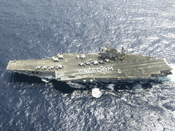 |